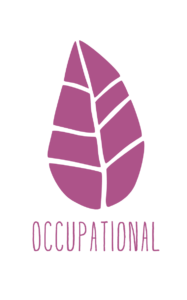Thrive
In this together
Our Shared Vision for Health and Wellbeing is modeled through our Collective Impact Model. The collective impact model is a collaborative approach to addressing complex social issues by bringing together a variety of interested and engaged parties from different sectors to work toward a common goal.
A campus-wide initiative, Thrive is owned by every member of the Wake Forest University community, giving you the skills, knowledge, and perspective to maintain a healthy, balanced life – wherever life may take you. Learn more about each of the eight dimensions below.

Emotional
Emotional Wellbeing isn’t arriving at a place of perfection; it’s about progressively learning how you work, and healthy ways to navigate your life. We are emotionally well when we know our pressure points and how to adapt to them. Handling life’s ups and downs is more manageable when we’ve learned to accept that they happen. Oftentimes, we can use preventative strategies to maintain emotional wellness and to know whom and when to ask for help when that doesn’t work.
The most important message to remember, but often a hard one to implement: Asking for help is a sign of strength.

Environmental
Your personal wellbeing can be enhanced by recognizing and seeking spaces and surroundings that stimulate, restore and positively energize the mind, body and senses. The definition of a safe, energizing, or restorative environment can be different for each of us. However, the benefits of actively seeking our preferred spaces are available to all, and our campus and community offer a wide range of options for you to explore
Sometimes, it can be as simple as taking a walk, engaging in activities with friends, or removing yourself from an environment or situation that is causing you to feel unsafe or stressed. It can be social, solitary, brief, or extended.

Financial
Financial Wellbeing is essentially our ability to manage our resources in a responsible manner – both in the short term and the long. It is helpful to develop a proactive relationship with money while building the skills and abilities to manage it. Evaluating what you have now and what you want to obtain in the future is a part of health financial planning and contributes to your overall feelings of wellbeing.

Intellectual
We attain Intellectual Wellbeing when we view learning as an end unto itself rather than simply a means to a specific personal or professional outcome. We move beyond making observations and start developing ideas.
Intellectual Wellbeing is characterized by curiosity and a perpetual quest for new ways to help ourselves and those around us. It is dedicated to the notion that the greatest minds go beyond observations and inspire others by cultivating ideas.

Occupational
More than just a balancing act between work and life, Occupational Wellbeing is also about finding purpose and fulfillment in what we do. When we know we’re making a difference, we’re achieving Occupational wellbeing.
If you’re a student, your current “occupation” is your academic life. Your time in college will allow you to explore ways to pursue a career that provides you with an opportunity to fulfill your purpose with personal satisfaction and meaning.
Once you begin your career, everyone’s path will look a little different depending on what field you enter. Overall, it’s important to understand what you want out of your career.

Physical
Physical Wellbeing melds our needs for responsible consumption, activity, and rest-driven renewal. Think of it as the intersection of nutrition, diligence, and decompression.
With classes, study time, and social and extracurricular obligations nipping at your heels, getting movement in, eating well, or even finding time to relax can often seem challenging. However, you CAN find a way to take care of your physical wellbeing that works for you.
Among general health benefits, exercise and healthy foods help the body fend off illness, mitigate stress, and protect against lots of health conditions.
So how can you do it? Commit to a schedule that works for you. If you’ve planned for it, it’s more likely to happen. Bringing a friend or trying something new can help you stay motivated.

Social
Social Wellbeing is the result of our positive and regular interactions with others in a variety of settings. Studies have shown that building and maintaining strong relationships is vital to happiness. We’re social creatures who occasionally need a gentle nudge to find the right outlets.
Making new friends and nurturing long-term friendships are important parts of developing a healthy social network. These relationships can offer support during difficult times, celebrate with you when you win, and provide thought partnership during important decisions you will make as you grow and mature. Social wellbeing includes learning to balance your social life with other aspects of your life, like work and family obligations.
If you haven’t found your niche yet, it’s out there waiting for you. One of the best ways to expand your horizons is to join one of the nearly 200 student organizations on campus! You’ll be amazed at the difference they can make.

Spiritual
The concept of spirituality can have many interpretations, but generally speaking, it can be achieved when our core values and beliefs tie us to a sense of something larger than ourselves and empower us to act according to those beliefs.
Wake Forest neither endorses nor inhibits any particular religious orientation or absence thereof. This approach may help explain why the undergraduate community includes members of 21 distinct faith traditions, and the School of Divinity’s student body claims 26.
The Office of the Chaplain includes faith leaders in Christianity, Judaism, Hindi, and Islam, all of whom actively engage with students in a multifaith tradition.
